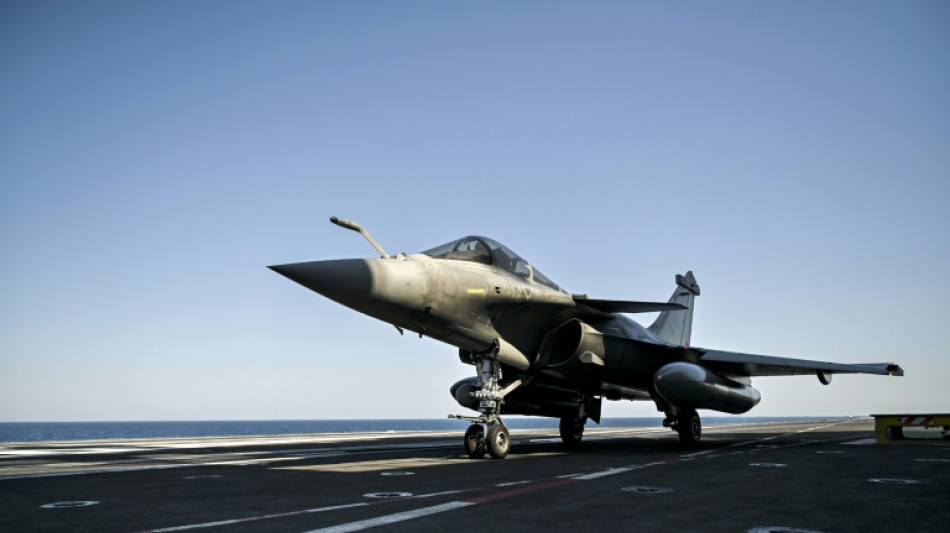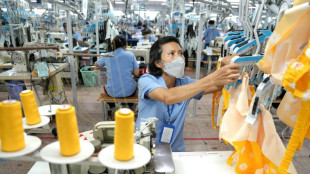

Greece to spend 25 bn euros in 'drastic' defence overhaul: PM
Greece will spend 25 billion euros ($27 billion) through to 2036 in the "most drastic" defence overhaul in its modern history, Prime Minister Kyriakos Mitsotakis said on Wednesday.
The drive, which includes a new anti-missile, anti-aircraft and anti-drone defensive dome called "Achilles's Shield", is aimed at addressing rapidly changing geopolitical challenges and fraying transatlantic ties, Mitsotakis said.
"Τhe plan involves the most drastic transformation of the armed forces in the country's modern history," Mitsotakis told parliament.
"The world is changing at an unforeseeable pace."
Greece has traditionally invested at least two percent of gross domestic product on its defence -- NATO's spending target -- owing to decades of tension with regional rivals Turkey.
But the new initiative is also designed to make the country of 10.5 million people "a key branch" of the European Union's defence mechanism, contributing one of the bloc's "most advanced" armies, Mitsotakis said.
This year, the nation's military budget doubled to 6.13 billion euros ($6.6 billion).
Alongside Poland, Estonia and Latvia, Greece is now one of the few NATO member states that allocates more than three percent of output to defence.
"Historically, Greece has served and will continue to serve as an outpost for Europe, which is currently seeking to reorganise its defence in a difficult international setting," said Maria Gavouneli, a professor of international law at the University of Athens.
- 'Achilles's Shield' -
Greek media reports suggest Athens is in negotiations with Israel to acquire the defensive dome, which also includes enhancing anti-drone systems.
France, Italy and Norway have been also cited as possible suppliers of the new weapons, which include unmanned vessels (USVs), drones and radars.
Greece has sought to strengthen its position on the EU's Eastern Mediterranean border, close to the conflict zones of the Middle East.
A dutiful buyer of European military equipment, especially from France and Germany, Greece has always justified its arms spending by pointing to territorial disputes and threats from historic rival Turkey.
- 'Necessary' overhaul -
"This reorganisation was necessary for Greece because during the economic crisis of the last decade and the freeze on public spending, the country fell behind in terms of modernising (its arsenal)," said Gavouneli, who is also the director general of the Hellenic Foundation for European and Foreign Policy think-tank.
Greece has signed a military cooperation agreement with France, ordering 24 Rafale fighter jets and three Belharra-class defence and intervention frigates (FDI) for a total of more than 5.5 billion euros.
And Athens has suggested building three more of the frigates in Greek shipyards, a source at France's Naval Group said on Wednesday.
Athens has also signed a deal for the acquisition of 20 US-made F-35 fighter jets.
Last November, Defence Minister Nikos Dendias said Greece would order four different drone systems and overhaul its armed forces by merging military units.
Athens must cope with a "different reality" and modernise its forces quickly to meet the challenges of the 21st century and those in its relationship with Ankara, Dendias said at the time.
France, Germany, and Poland recently announced plans to bolster their militaries at a time of faltering confidence in the US military umbrella. European Commission President Ursula von der Leyen has stressed that the EU must significantly increase its arms spending in the face of the threat from Russia.
O.Valdez--RTC



